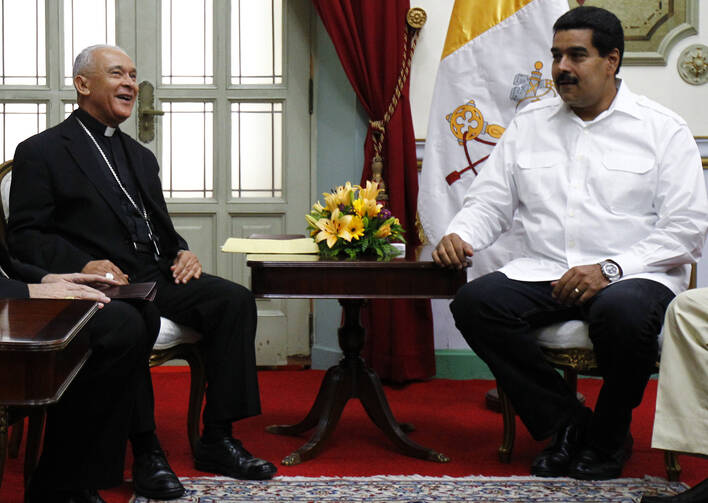In a hard-hitting statement released on April 2, Venezuela’s Roman Catholic Church accused President Nicolas Maduro’s government of “totalitarian” tendencies and “brutal repression” of demonstrators during two months of political unrest that has resulted in the deaths of 39 people. The bishops’ denunciation is likely to revive church-state tensions that were constant during the 14-year rule of Maduro’s predecessor, Hugo Chávez. Bishop Diego Padrón, who heads Venezuela’s conference of bishops, said the principal cause of the crisis was the government’s attempt to implement “the fatherland plan,” a blueprint for government that Chávez left behind. “Within it they are hiding the promotion of a totalitarian-style system of government, putting in doubt its democratic credentials,” he said, reading a church communiqué. Though it defended the right of students and others to protest, the church condemned both the demonstrators’ tactic of barricading roads and the state’s suppression of dissidence. “The government is wrong to want to solve the crisis by force,” the church statement added. “The solution is clear: sincere dialogue between the government and all sectors.”
Bishops Slam Maduro
Show Comments (
)
Comments are automatically closed two weeks after an article's initial publication. See our comments policy for more.
The latest from america
Do the social networks that Catholic influencers are forming online reflect the values of the Gospel or those of the platform?
Whenever I teach a seminar on T. S. Eliot’s work, I spend the first day of class on ‘Marina.’
The figures represent a huge increase in abortion within a decade, since in 2012 abortion ended 20.84% of conceptions—a fifth of all pregnancies.
Serving life by caring for others is “the supreme law” that comes before all of society’s rules, Pope Leo XIV said in his first Angelus address at the papal summer residence.








